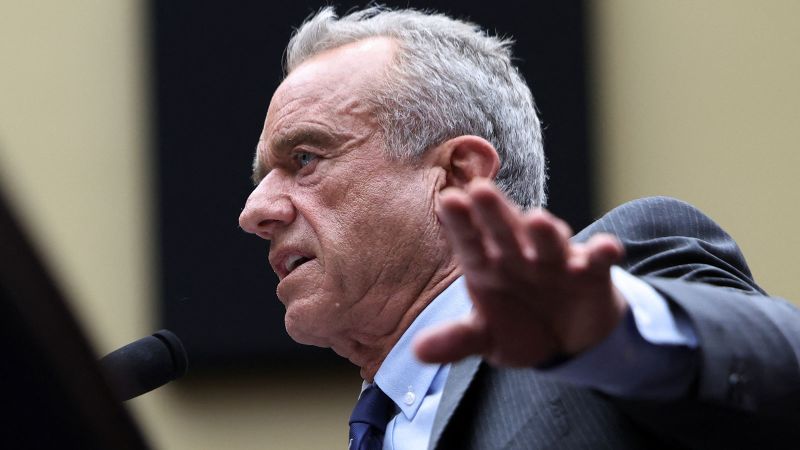The landscape of vaccine advisory in the United States is currently experiencing significant upheaval, centered on the role of the Centers for Disease Control and Prevention’s Advisory Committee on Immunization Practices (ACIP). This week, ACIP is set to convene for its second regular meeting of the year; however, the agenda is far from routine. Recent changes initiated by U.S. Health and Human Services Secretary Robert F. Kennedy Jr., known for his controversial stance on vaccines, have resulted in a complete overhaul of the advisory panel’s membership. Out of the original 17 members, all were dismissed and replaced by eight new members, many of whom lean towards vaccine skepticism.
These drastic modifications have raised alarm among public health experts, who express concern regarding potential conflicts of interest and the overall expertise of the new panel. Critics warn that such shifts could result in what they term “vaccine chaos,” where varying vaccine recommendations proliferate, leading to inconsistent access and uncertain insurance coverage for patients. Notably, Dr. Peter Hotez, a prominent pediatrician and co-director at the Texas Children’s Hospital Center for Vaccine Development, decried the restructured ACIP as lacking meaningful expertise in infectious diseases and vaccines, stating it has transitioned to a “pseudoscience agenda.”
ACIP has a long-standing history, having served as a trusted source of vaccine recommendations for over six decades, often embedding its guidelines into state laws. It acts like a maestro for the country’s vaccination strategy, steering physicians on vaccine usage, guiding insurance companies on coverage decisions, and advising states on vaccine purchases needed for school enrollment. The committee’s recommendations follow comprehensive consultations with expert consultants from various professional groups, ensuring a consensus before they are enacted as standard practice across the nation.
In light of the significant uncertainty surrounding ACIP, several organizations, including the Vaccine Integrity Project, are striving to formulate evidence-based recommendations that could stand independent of the CDC’s directives. Concurrently, certain states like Maine, which has witnessed commendable vaccination rates among school-age children, have begun to eliminate references to ACIP recommendations in their laws, further complicating the landscape.
Experts have raised concerns about the prospect of diverging vaccine guidelines, fearing confusion among healthcare providers, insurers, and the general public. As Dr. William Schaffner, an infectious disease expert from Vanderbilt University, pointed out, this period may usher in a phase of “vaccine chaos,” where providers and the public alike grapple with unclear vaccination pathways and coverage details. Furthermore, the recommendations put forth by outside groups would lack the binding status that ACIP commands, creating uncertainties regarding insurance compliance and coverage for vaccine services.
Recent personnel changes within ACIP have also stirred apprehension. The new members, appointed by Kennedy, may not have the requisite expertise in infectious diseases, with some being associated with organizations that tend to amplify the risks and harms associated with vaccinations, while questioning their benefits. Their expertise casts doubts on the credibility of future ACIP recommendations, which traditionally follow rigorous evaluation processes grounded in established medical research and data.
As the ACIP meetings draw near, members typically engage in “work groups” that focus on specific vaccines or diseases, preparing recommendations for the broader committee. These meticulously curated guidelines guide patient healthcare, influence insurance coverage mandates, and dictate vaccine availability for state-sponsored programs such as Vaccines for Children, which supplies vaccines to families in need.
In essence, the newly emerged rifts within ACIP and the broader implications of Kennedy’s shake-up extend beyond just the committee. With potentially conflicting recommendations jeopardizing the coherence and trust that the public and healthcare providers have long held in the ACIP, there looms a future where vaccine accessibility and acceptance may suffer unless a robust, scientifically objective path is reestablished swiftly. The stakes are high, underscoring the profound influence that this committee holds over public health outcomes in the nation.












